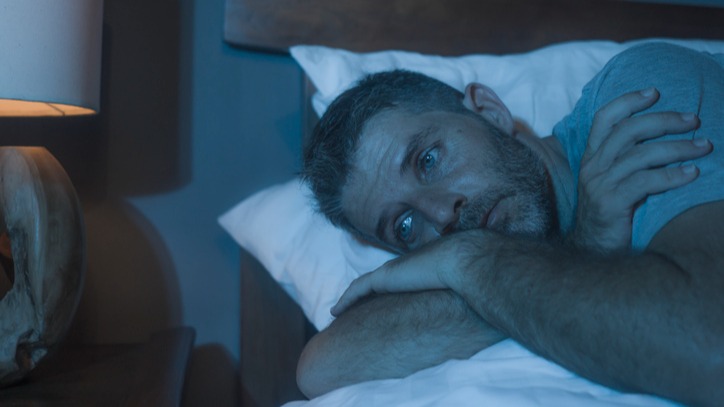
Anxiety disorder is a prevalent and serious mental health condition affecting millions worldwide. This article explores various types of drugs commonly used to treat anxiety disorders, including selective serotonin reuptake inhibitors (SSRIs), serotonin-norepinephrine reuptake inhibitors (SNRIs), tricyclic antidepressants (TCAs), and benzodiazepines. It also discusses alternative treatment options such as cognitive-behavioral therapy (CBT) and lifestyle changes. By understanding these treatment options, individuals can effectively manage their anxiety and improve their overall well-being. Seek appropriate resources and support for the long-term management of this chronic condition.
Key Takeaways
There are different types of anxiety medications available, including selective serotonin reuptake inhibitors (SSRIs), serotonin-norepinephrine reuptake inhibitors (SNRIs), tricyclic antidepressants (TCAs), and benzodiazepines.
Each type of medication may have its own side effects, which should be discussed with a healthcare professional.
While there is a small risk of increased suicidal thoughts or behavior with antidepressants, the benefits of medication generally outweigh the risks. Close monitoring and reporting any concerning thoughts or mood changes are important.
Apart from medication, various alternatives for managing anxiety include cognitive-behavioral therapy (CBT), other types of therapy, herbal supplements, and lifestyle changes.
Types of Anxiety Medication
There are five main types of anxiety medications commonly prescribed for the treatment of anxiety disorders. These medications include selective serotonin reuptake inhibitors (SSRIs), serotonin-norepinephrine reuptake inhibitors (SNRIs), tricyclic antidepressants (TCAs), benzodiazepines, and other medications.
SSRIs, such as fluoxetine and sertraline, are often the first-line treatment for anxiety disorders. They work by increasing the levels of serotonin in the brain, regulating mood, and reducing anxiety symptoms. SNRIs, such as venlafaxine and duloxetine, also increase the levels of serotonin and norepinephrine in the brain, providing similar benefits.
Tricyclic antidepressants (TCAs), such as imipramine and amitriptyline, are older antidepressants that can be effective in treating anxiety disorders. They work by blocking the reuptake of serotonin and norepinephrine, thereby increasing their levels in the brain.
Benzodiazepines, such as diazepam and lorazepam, are sedatives that can provide immediate relief from anxiety symptoms. However, they are typically prescribed for short-term use due to their potential for dependence and abuse.
Other medications, such as antidepressants like buspirone and hydroxyzine, may also be prescribed to treat anxiety disorders.
Now, let's delve into the details of selective serotonin reuptake inhibitors (SSRIs) and their role in the treatment of anxiety disorders.
Selective Serotonin Reuptake Inhibitors (SSRIs)
Selective serotonin reuptake inhibitors (SSRIs) are a class of medication commonly prescribed for the treatment of anxiety disorders, continuing the discussion from the previous subtopic by providing another effective option for managing anxiety symptoms. SSRIs work by increasing the levels of serotonin, a neurotransmitter in the brain responsible for regulating mood, in the synaptic space between nerve cells. This helps alleviate anxiety symptoms by improving overall mood and reducing feelings of worry and fear.
Some commonly prescribed SSRIs include fluoxetine (Prozac), sertraline (Zoloft), and escitalopram (Lexapro). These medications are often preferred over other anxiety medications due to their favorable side effect profile and lower risk of dependence. However, as with any medication, SSRIs may cause side effects such as nausea, headache, and sexual dysfunction. It is important to work closely with a healthcare professional to determine the most appropriate dosage and to monitor for any potential side effects.
SSRIs are typically taken on a daily basis and may take several weeks to start showing noticeable improvement in anxiety symptoms. It is important to continue taking the medication as prescribed and not to abruptly stop without consulting a healthcare professional, as this can lead to withdrawal symptoms. In addition to medication, therapy and lifestyle changes may also be recommended to effectively manage anxiety symptoms. Overall, SSRIs offer a valuable option for individuals seeking relief from anxiety disorders and can be used in conjunction with other treatment modalities for optimal outcomes.
Serotonin-Norepinephrine Reuptake Inhibitors (SNRIs)
Serotonin-norepinephrine reuptake inhibitors (SNRIs) are a class of medication commonly used in the treatment of anxiety disorders. SNRIs work by increasing the levels of serotonin and norepinephrine, two neurotransmitters in the brain that play a role in regulating mood and emotions. By blocking the reuptake of these neurotransmitters, SNRIs help enhance their effects and alleviate symptoms of anxiety.
SNRIs are often prescribed when other medications, such as selective serotonin reuptake inhibitors (SSRIs), have not been effective or well-tolerated. They are considered an effective treatment option for various anxiety disorders, including generalized anxiety disorder, social anxiety disorder, and panic disorder.
Commonly prescribed SNRIs include venlafaxine (Effexor), duloxetine (Cymbalta), and desvenlafaxine (Pristiq). These medications are usually taken once or twice daily and may take several weeks to reach full effectiveness.
It is important to note that SNRIs, like all medications, can have side effects. These may include nausea, dizziness, insomnia, and sexual dysfunction. It is essential to work closely with a healthcare professional when taking SNRIs to monitor for any adverse effects and adjust the dosage as needed.
In addition to medication, other treatment options for anxiety disorders may include therapy, such as cognitive-behavioral therapy (CBT), relaxation techniques, and lifestyle changes. Consulting with a healthcare provider is crucial to determining the most appropriate treatment plan for individual needs.
Tricyclic Antidepressants (TCAs)
TCAs are another class of medication commonly used in the treatment of anxiety disorders, continuing the discussion of treatment options from the previous subtopic. These medications work by increasing the levels of certain chemicals in the brain, such as norepinephrine and serotonin, which are known to regulate mood and often relieve anxiety. TCAs are often prescribed when other antidepressants have been ineffective.
TCAs can be effective in reducing anxiety symptoms, but they may take longer to show their full effect compared to other medications. It is important to note that TCAs can have side effects, such as dry mouth, constipation, blurred vision, and dizziness. These side effects can be managed by adjusting the dosage or switching to a different medication.
While TCAs can be a valuable treatment option, they are not without risks. It is important to work closely with a healthcare provider to monitor for any potential interactions or adverse effects. Additionally, TCAs should not be abruptly discontinued, as this can lead to severe withdrawal symptoms.
Next, we will discuss another class of medication commonly used for anxiety disorders: benzodiazepines. These medications provide quick relief from anxiety symptoms and are often prescribed for short-term use.
Benzodiazepines
Continuing the discussion of treatment options, another class of medication commonly used for anxiety disorders is benzodiazepines. Benzodiazepines are a type of central nervous system depressant that work by enhancing the effects of a neurotransmitter called gamma-aminobutyric acid (GABA), which helps to reduce anxiety and promote a sense of calm. These medications are often prescribed for short-term relief of anxiety symptoms, such as panic attacks or acute episodes of anxiety.
Benzodiazepines have a rapid onset of action and can provide quick relief from anxiety symptoms. They are generally well-tolerated and can be effective in reducing anxiety, promoting relaxation, and improving sleep. However, they also carry the risk of potential side effects, such as drowsiness, dizziness, and impaired coordination.
It is important to note that benzodiazepines should be used with caution and under the guidance of a healthcare professional. They can be habit-forming and may lead to dependence if used for an extended period. Therefore, these medications are typically prescribed for short-term use or on an as-needed basis.
Other Medications for Anxiety
Other medications for anxiety are available as alternative treatment options, providing additional choices for individuals seeking relief from their anxiety symptoms. While benzodiazepines and antidepressants are commonly prescribed for anxiety disorders, there are also other medications that can be used. These medications work through different mechanisms to help alleviate anxiety symptoms.
Buspirone is one such medication that is often used to treat generalized anxiety disorder. It is a non-benzodiazepine anxiolytic that works by binding to serotonin and dopamine receptors in the brain. Unlike benzodiazepines, buspirone does not cause sedation or dependence, making it a safer option for long-term use.
Another medication that may be prescribed for anxiety relief is hydroxyzine. It is an antihistamine with sedative properties, which can help reduce anxiety symptoms. Hydroxyzine is often used on a short-term basis to manage acute anxiety episodes.
Additionally, certain anticonvulsant medications, such as pregabalin and gabapentin, have been found to be effective in treating anxiety disorders. These medications work by stabilizing abnormal electrical activity in the brain, which can help reduce anxiety symptoms.
It is important to note that the choice of medication should be made in consultation with a healthcare professional. They will evaluate the individual's specific symptoms, medical history, and potential drug interactions to determine the most appropriate treatment.
Side Effects of Anxiety Medication
Common side effects can occur with anxiety medication, and it is important to be aware of them when considering treatment options. While effective in reducing symptoms, it is essential to understand the potential risks and side effects associated with these medications.
Some common side effects of anxiety medication, including selective serotonin reuptake inhibitors (SSRIs), serotonin-norepinephrine reuptake inhibitors (SNRIs), tricyclic antidepressants (TCAs), and benzodiazepines, include drowsiness, dizziness, nausea, headache, and sexual dysfunction. The severity of these side effects can vary and may differ depending on the specific medication prescribed.
It is crucial to note that side effects can vary from person to person, and not everyone will experience them. If side effects occur and become bothersome or persistent, it is important to discuss them with a healthcare professional. They can provide guidance on managing these side effects, adjusting the medication dosage, or exploring alternative treatment options.
In addition to common side effects, there may be other less common side effects associated with anxiety medication. These can include changes in appetite, weight gain or loss, dry mouth, constipation, and increased sweating. Again, it is essential to communicate any unusual or concerning symptoms to a healthcare professional for further evaluation and guidance.
Side Effects of SSRIs
Several potential side effects are associated with the use of selective serotonin reuptake inhibitors (SSRIs) for treating anxiety disorders. While SSRIs are generally considered safe and well-tolerated, it is important to be aware of these potential adverse effects. Common side effects of SSRIs include nausea, diarrhea, headache, insomnia, drowsiness, and sexual dysfunction. These side effects are usually mild and transient, and they often improve over time as the body adjusts to the medication. However, in some cases, they may persist and become bothersome.
In rare instances, SSRIs may cause more serious side effects such as serotonin syndrome, a potentially life-threatening condition characterized by agitation, confusion, rapid heart rate, high blood pressure, dilated pupils, tremors, and sweating. Additionally, SSRIs may increase the risk of bleeding, particularly in individuals taking blood thinners or those with a history of bleeding disorders.
It is important to note that the benefits of SSRIs in treating anxiety disorders generally outweigh the risks of side effects. However, if you experience any concerning side effects or changes in mood while taking SSRIs, it is crucial to report them immediately to your healthcare professional. They can help assess the situation and make any necessary adjustments to your treatment plan. Regular monitoring and open communication with your healthcare provider are key to ensuring your well-being and managing any potential side effects effectively.
Side Effects of SNRIs
Serotonin-norepinephrine reuptake inhibitors (SNRIs) may cause various side effects when used to treat anxiety disorders. It is important for individuals considering SNRIs as a treatment option to be aware of these potential side effects. Common side effects of SNRIs include nausea, dizziness, headache, insomnia, and sexual dysfunction. In some cases, SNRIs may also lead to increased blood pressure, heart rate, and sweating. It is crucial for individuals taking SNRIs to closely monitor these side effects and report any concerns to their healthcare provider. While these side effects can be unpleasant, it is important to remember that not everyone experiences them, and they may vary in severity. Furthermore, healthcare providers can assist in managing these side effects and finding alternative treatment options if needed. It is also worth noting that the benefits of SNRIs in treating anxiety disorders generally outweigh the risks of side effects. Overall, individuals considering SNRIs as a treatment option should consult with their healthcare provider to discuss the potential side effects and determine the best course of action for their specific situation.
Side Effects of TCAs
TCAs may elicit various side effects when used to treat anxiety disorders. It is important for individuals seeking relief from anxiety to be aware of these potential side effects in order to make informed decisions about their treatment options.
Common side effects of TCAs include dry mouth, blurred vision, constipation, dizziness, and drowsiness. While these effects may be mild and temporary, in some cases, they can be more severe and persistent. It is crucial for individuals to discuss any concerns or adverse effects with their healthcare provider.
In addition to these common side effects, TCAs may also cause other less common but potentially serious side effects. These can include changes in heart rhythm, increased blood pressure, urinary retention, and weight gain. It is important for individuals to be aware of these potential risks and to report any concerning symptoms to their healthcare provider immediately.
It is worth noting that not all individuals will experience these side effects, and the severity and occurrence of side effects can vary from person to person. Healthcare providers will carefully consider the benefits and risks of TCAs in each individual case, ensuring the most appropriate treatment plan is put in place.
Side Effects of Benzodiazepines
Benzodiazepines can cause various side effects when used to treat anxiety disorders. These medications are commonly prescribed to alleviate symptoms of anxiety, such as excessive worrying, restlessness, and muscle tension. However, it is important to be aware of the potential side effects that may arise from their use.
Common side effects of benzodiazepines include drowsiness, dizziness, and confusion. These effects can impair cognitive function and coordination, making it important to avoid activities that require alertness, such as driving or operating machinery, while taking these medications. Additionally, taking benzodiazepines alone can cause memory problems and difficulty concentrating, which may impact daily functioning.
Other side effects include headaches, nausea, and dry mouth. Some individuals may also experience changes in appetite, weight gain, or gastrointestinal issues such as constipation or diarrhea. It is important to discuss any bothersome side effects with a healthcare professional to determine the best course of action.
In rare cases, benzodiazepines can lead to paradoxical reactions, involving increased anxiety, agitation, or aggression. If these reactions occur, seek immediate medical attention.
Other Side Effects
What are some potential side effects of anxiety medication? While these can vary depending on the specific type of anti-anxiety medication used, there are common side effects like drowsiness, dizziness, headaches, nausea, and dry mouth. It's important to note that not everyone will experience these side effects, and some individuals may have different reactions altogether.
In addition to the common side effects, there are other potential but less common side effects to be aware of, including changes in appetite, weight gain or loss, sexual dysfunction, blurred vision, and trouble sleeping. If you experience any side effects, it's essential to discuss them with your healthcare provider. They can help determine if adjustments to the medication are needed or if alternative treatment options or other drugs should be considered.
It's also important to note that while these side effects can be distressing, they are often temporary and may subside as your body adjusts to the medication. However, if you experience severe or persistent side effects, it's important to seek medical attention. Your healthcare provider can offer guidance and support to ensure that you are receiving the most effective and appropriate treatment for your anxiety disorder.
Suicide Risk and Antidepressants
The assessment of suicide risk is an important consideration when prescribing antidepressant medication for anxiety disorders. While antidepressants are generally safe and effective in treating anxiety, there is a small risk of increased suicidal thoughts or behavior, particularly in the initial stages of treatment. It is crucial for healthcare professionals to closely monitor patients during this time, and patients should promptly report any concerning thoughts or changes in mood.
However, it is important to note that the benefits of medication generally outweigh the risks. Suicide risk is not exclusive to antidepressants and can be associated with the underlying anxiety disorder itself. By effectively managing anxiety symptoms with medication, individuals may experience an improvement in their overall mental well-being, thereby reducing the risk of suicidal thoughts and behaviors.
In addition to medication, other treatment options are available for anxiety disorders, such as cognitive-behavioral therapy (CBT) and lifestyle changes. These can be used as alternatives to medication or in combination with it to provide comprehensive care.
Now, let's explore home remedies for anxiety, which can complement medical treatment and promote overall mental well-being.
Alternatives to Medication for Anxiety
Can individuals with anxiety explore non-medication approaches for treatment? Yes, several alternatives to medication for anxiety can be considered. For those who prefer a holistic approach to mental health problems or want to avoid the potential side effects of medications, non-medication treatments can be effective in managing anxiety symptoms.
One alternative is cognitive-behavioral therapy (CBT), a widely recognized and evidence-based therapy for anxiety disorders. CBT helps individuals identify and change negative thought patterns and behaviors that contribute to anxiety. It equips them with practical coping skills to manage anxiety and develop healthier ways of thinking and responding.
Other forms of therapy, such as Mindfulness-Based Stress Reduction (MBSR) and Acceptance and Commitment Therapy (ACT), can also be beneficial in alleviating anxiety symptoms. These approaches emphasize enhancing self-awareness, accepting thoughts and emotions, and building resilience.
Alongside therapy, herbal supplements such as chamomile, lavender, and passionflower have traditionally been used to promote relaxation and alleviate anxiety. However, it is essential to consult with a healthcare professional before incorporating any herbal supplement to ensure safety and effectiveness.
Additional non-medication approaches comprise acupuncture, massage therapy, and yoga, which can aid in stress reduction, promote relaxation, and enhance overall well-being. Lifestyle changes, including regular exercise, sufficient sleep, and a healthy diet, also play a significant role in managing anxiety.

Symptoms of Generalized Anxiety Disorder
Excessive worrying is a prominent symptom of Generalized Anxiety Disorder (GAD). Individuals with GAD often experience persistent and uncontrollable worry about various aspects of their lives, including work, relationships, mental health care, and daily activities. This excessive worrying is frequently accompanied by restlessness, irritability, muscle tension, and fatigue.
In addition to emotional and cognitive symptoms, GAD can also manifest physically. Many individuals with GAD report muscle tension, headaches, stomachaches, and various other physical symptoms and discomforts. They may also have difficulty concentrating, experience sleep disturbances, and feel constantly on edge.
It is important to note that the symptoms of GAD can vary from person to person, and their severity may fluctuate over time. Some individuals may have mild symptoms that do not significantly interfere with their daily functioning, while others may experience more severe symptoms that impact their quality of life.
Recognizing the symptoms of GAD is crucial to seeking appropriate treatment and support. If you or someone you know is experiencing excessive worrying and other symptoms associated with GAD, it is recommended to consult with a healthcare professional who can provide an accurate diagnosis and develop a personalized treatment plan.
Risk Factors and Diagnosis of Generalized Anxiety Disorder
The identification of risk factors and the accurate diagnosis of GAD are essential steps in providing appropriate treatment and support. GAD can be influenced by a variety of factors, including a family history of anxiety disorders, traumatic life events, chronic medical conditions, substance abuse, and personality traits such as perfectionism. It is important for healthcare professionals to conduct a clinical interview and assessment to evaluate the duration and severity of symptoms, and to rule out other medical conditions that may be contributing to the anxiety.
The diagnostic criteria outlined in the DSM-5 are also used to aid in the diagnosis of GAD. In addition to the clinical evaluation, psychological questionnaires and scales may be administered to gather more information about the individual's symptoms and overall functioning. Accurate diagnosis is crucial in determining the most appropriate treatment approach, whether it be cognitive-behavioral therapy (CBT), medications such as selective serotonin reuptake inhibitors (SSRIs), relaxation techniques, support groups, or lifestyle changes.
By understanding the risk factors and accurately diagnosing GAD, healthcare professionals can provide the necessary support and treatment to help individuals manage their anxiety and improve their quality of life.

Treatment Options for Generalized Anxiety Disorder
One of the treatment options for GAD is cognitive-behavioral therapy (CBT). This form of therapy focuses on identifying and changing negative thought patterns and behaviors that contribute to anxiety. It helps individuals develop coping strategies and skills to manage their anxiety more effectively. CBT is typically conducted by a trained therapist and involves regular sessions over a period of several weeks or months.
Another treatment option for GAD is medication, such as selective serotonin reuptake inhibitors (SSRIs). These medications work by increasing the levels of serotonin in the brain, which helps regulate mood and reduce anxiety symptoms. SSRIs are commonly prescribed for GAD and may take several weeks to reach their full effect.
In addition to therapy and medication, individuals with GAD can also benefit from relaxation techniques, such as deep breathing and progressive muscle relaxation. These techniques help reduce muscle tension and promote a sense of calm. Support groups and peer counseling can also provide valuable support and understanding for individuals with GAD.
Lifestyle changes, such as regular exercise and a healthy diet, can also play a role in managing GAD. Exercise has been shown to reduce anxiety symptoms and improve overall well-being. It is important for individuals with GAD to work closely with their healthcare provider to develop a personalized treatment plan that addresses their specific needs and preferences.
Frequently Asked Questions
Are There Any Natural Remedies or Alternative Treatments for Anxiety That Can Be Used Instead of Medication?
Yes, there are natural remedies and alternative treatments for anxiety that can be used instead of medication. These include cognitive-behavioral therapy, relaxation techniques, herbal supplements, acupuncture, and lifestyle changes. It is important to consult with a healthcare professional for personalized treatment recommendations.
What Are the Potential Side Effects of Anxiety Medication and How Common Are They?
Potential side effects of anxiety medication may vary depending on the specific type of medication prescribed. Common side effects can include gastrointestinal issues, drowsiness, dizziness, sexual dysfunction, weight changes, and an increased risk of suicidal thoughts.
Is There a Risk of Increased Suicidal Thoughts or Behavior When Taking Antidepressants for Anxiety?
Yes, there is a small risk of increased suicidal thoughts or behavior when taking antidepressants for anxiety. However, the benefits of medication generally outweigh the risks. Close monitoring by a healthcare professional is important, and any concerning thoughts or changes in mood should be reported immediately.
How Can Generalized Anxiety Disorder Be Diagnosed and What Criteria Are Used to Determine if Someone Has It?
Generalized anxiety disorder is diagnosed through clinical interviews, symptom assessment, and an evaluation of duration and severity. Diagnostic criteria from the DSM-5 are utilized, along with psychological questionnaires and scales, to rule out other conditions.
Besides Medication, What Other Treatment Options Are Available for Generalized Anxiety Disorder and How Effective Are They?
Treatment options for generalized anxiety disorder include cognitive-behavioral therapy (CBT), relaxation techniques, support groups, and lifestyle changes. These approaches have shown effectiveness in managing symptoms and improving overall well-being, complementing or even replacing medication.
Rely on PlanetDrugsDirect.com to Buy Online Your Anti-Anxiety Prescription Drugs
As a trusted prescription referral service, we offer important benefits whenever you order online. Each of our partner pharmacies and/or government-approved dispensaries is committed to providing the best experience possible of any online prescription referral service on the internet. We offer:
Low prices
Quick turn-around times
Generic and brand-name medications
Unparalleled customer service
Sources
Pharmacotherapy of Anxiety Disorders: Current and Emerging Treatment Options - PubMed (nih.gov)
The knowns and unknowns of SSRI treatment in young people with depression and anxiety: efficacy, predictors, and mechanisms of action - PubMed (nih.gov)
Cognitive behavioral therapy for primary care depression and anxiety: a secondary meta-analytic review using robust variance estimation in meta-regression - PubMed (nih.gov)
Cognitive behavioral group therapy for anxiety: recent developments - PubMed (nih.gov)
 Medically reviewed by
Medically reviewed by 





